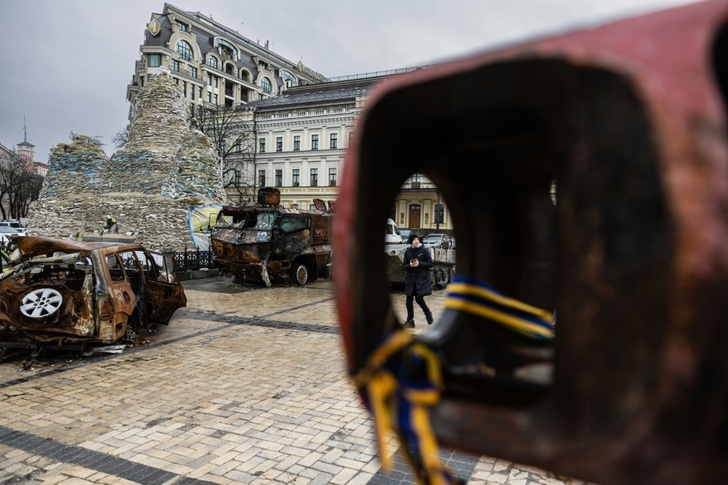Calls for a ceasefire in Ukraine came from inside Russia and abroad on Thursday, days after the deadliest reported loss of the war for Moscow's forces.
Russia occupies parts of eastern and southern Ukraine after 11 months of fighting, but Kyiv has reclaimed swaths of its territory and this week claimed a New Year's strike that killed scores of Moscow's troops.
Turkish President Recep Tayyip Erdogan, who has good relations with Moscow, urged his Russian counterpart Vladimir Putin to declare a "unilateral" ceasefire".
"Calls for peace and negotiations should be supported by a unilateral ceasefire and a vision for a fair solution," Erdogan was quoted as telling the Russian leader in a telephone call.
Putin told Erdogan he was open to dialogue if Kyiv accepts land occupied by Moscow as Russian, said the Kremlin, which has annexed the Donetsk, Lugansk, Zaporizhzhia and Kherson regions despite not fully controlling them.
"Putin again confirmed Russia's openness to serious dialogue on the condition of Kyiv authorities fulfilling the well-known and repeatedly voiced requirements of taking into account the new territorial realities," a Kremlin statement said.

Turkey hosted two early rounds of peace talks and helped strike a UN-backed agreement restoring Ukrainian grain deliveries across the Black Sea.
Erdogan's "unilateral" ceasefire call followed a proposal earlier in the day by Russia's spiritual leader Patriarch Kirill for an Orthodox Christmas truce this week.
The 76-year-old Orthodox leader, a staunch supporter of Putin, has given his blessing to Russian troops fighting in Ukraine and delivered heavily anti-Western and anti-Kyiv sermons throughout the conflict.
Kirill appealed to "all parties involved in the internecine conflict with a call to cease fire and establish a Christmas truce from 12:00 on January 6 to 00:00 on January 7 so that Orthodox people can attend services on Christmas Eve and on the day of the Nativity of Christ," he said on the church's official website.

In May, the Moscow-backed branch of Ukraine's Orthodox Church severed ties with Russia, citing his lack of condemnation of the fighting.
- Worst single loss -
The ceasefire calls came after Moscow lifted its reported toll in its worst single reported loss from a Ukrainian strike to 89 dead.
According to Ukraine's military strategic communications unit nearly 400 Russian soldiers died in pro-Russian separatist-held town of Makiivka in eastern Ukraine, and even Russian commentators have said the death toll may be far higher than the official figure.
Following a wave of Russian strikes on Ukrainian targets on New Year's Eve, Moscow said Ukraine struck Makiivka at 12:01 am local time January 1, using US-supplied HIMARS rocket systems.

Wagner boss Yevgeny Prigozhin appeared in a video released Thursday speaking to a gathering of men -- some injured and whose faces were blurred.
"You've worked through your contract. You worked honourably, with dignity," Prigozhin said in the tape published by Russia's Ria Novosti news agency.
Prigozhin said the men "should be treated with deepest respect by society" after completing six-month contracts to obtain freedom
Wagner fighters have been at the forefront of Moscow's offensive and their presence has also been reported in conflict zones including Syria, Libya, Mali and the Central African Republic.
The deadly Makiivka strike came after months of discontent within Russia towards the military following a series of battlefield defeats and a hugely unpopular mobilisation drive.

In a video, Lieutenant General Sergei Sevryukov said Russian troops had likely used cell phones, giving away their location to Ukrainian forces.
But some critics have said the military is trying to shift the blame, and Russian military correspondents have accused commanders of incompetence.
bur/bp/jmm
© Agence France-Presse
Your content is great. However, if any of the content contained herein violates any rights of yours, including those of copyright, please contact us immediately by e-mail at media[@]kissrpr.com.
Source: Story.KISSPR.com

